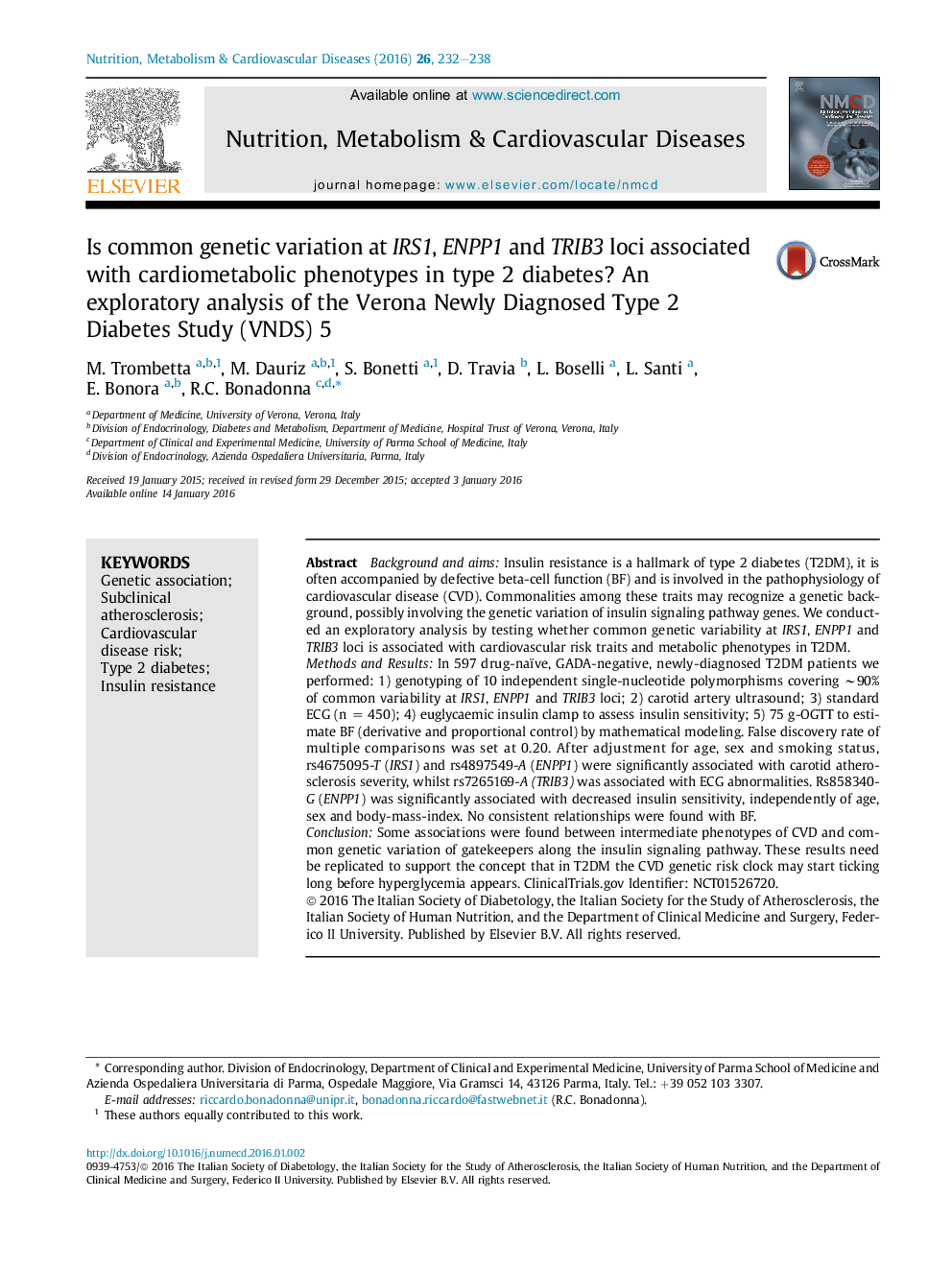| Article ID | Journal | Published Year | Pages | File Type |
|---|---|---|---|---|
| 3001777 | Nutrition, Metabolism and Cardiovascular Diseases | 2016 | 7 Pages |
•Type 2 diabetes and cardiovascular disease might share a common genetic signature.•IRS1, ENPP1, TRIB3 loci are known gatekeepers of the insulin signaling cascade.•We studied common genetic variation at these loci in type 2 diabetes at diagnosis.•We report that genetic variants at these loci associate with cardiovascular risk.•These variants also affect insulin sensitivity.
Background and aimsInsulin resistance is a hallmark of type 2 diabetes (T2DM), it is often accompanied by defective beta-cell function (BF) and is involved in the pathophysiology of cardiovascular disease (CVD). Commonalities among these traits may recognize a genetic background, possibly involving the genetic variation of insulin signaling pathway genes. We conducted an exploratory analysis by testing whether common genetic variability at IRS1, ENPP1 and TRIB3 loci is associated with cardiovascular risk traits and metabolic phenotypes in T2DM.Methods and ResultsIn 597 drug-naïve, GADA-negative, newly-diagnosed T2DM patients we performed: 1) genotyping of 10 independent single-nucleotide polymorphisms covering ∼90% of common variability at IRS1, ENPP1 and TRIB3 loci; 2) carotid artery ultrasound; 3) standard ECG (n = 450); 4) euglycaemic insulin clamp to assess insulin sensitivity; 5) 75 g-OGTT to estimate BF (derivative and proportional control) by mathematical modeling. False discovery rate of multiple comparisons was set at 0.20. After adjustment for age, sex and smoking status, rs4675095-T (IRS1) and rs4897549-A (ENPP1) were significantly associated with carotid atherosclerosis severity, whilst rs7265169-A (TRIB3) was associated with ECG abnormalities. Rs858340-G (ENPP1) was significantly associated with decreased insulin sensitivity, independently of age, sex and body-mass-index. No consistent relationships were found with BF.ConclusionSome associations were found between intermediate phenotypes of CVD and common genetic variation of gatekeepers along the insulin signaling pathway. These results need be replicated to support the concept that in T2DM the CVD genetic risk clock may start ticking long before hyperglycemia appears. ClinicalTrials.gov Identifier: NCT01526720.
